MATT, 27 Mathematician
Please be aware that this interview may cause distress to some readers. If you experience distress then please seek assistance and lean on your support networks.
How are you feeling?
Well, we did just eat lunch so I’m feeling pretty full. It’s been a pretty good day so far: this morning, I figured out a problem I was frustrating over last night and there was a new game released last night, that I immediately bought and downloaded and I’ve just been really enjoying it.
Can you tell me about your journey with mental health so far?
Alright so mental health, it’s a bit difficult to pin point where it all began. There are definitely a few catalysts, the main one being the moment when my father was diagnosed with a tumour in his lower spine. This was pretty much around the start of high school when I was about 13-14 years old. So, one of the things I had to grow up with, as you can imagine it was the time when I was a teenager and learning to discover myself, was having the lack of a father or a significant male figure in my life. Sort of something I still feel I’m missing in my life today. I’ve learnt or found ways to deal with it which I’ll specifically come to later. The other one was watching my father slowly decline.
It’s one of those things that hit you with what I like to call the “sledgehammer of reality”. It’s one of those things, that when the sledgehammer of reality hits you in the face you need to stop, pause, sit down, take in the situation and process any emotions that go through it. Because, one of the hammer of realities that happens to most children, is realising your parents are humans as well. When we’re young and growing up, we think our parents are these superhuman beings that can do anything. Then it gets to the point where for example, you start beating your parents in a certain game, one time was when I started beating my father in chess. There was another time where I asked my father, because he was Catholic both my parents are Catholic and religious, I remember asking my father “How do we know that God exists?” he just shook his head and said that it was a question you shouldn’t ask. That was when I started doubting religion but that’s another story for later.
It’s small things like that it builds on and the image of my father started to break down from there. I can say now that my father’s in a nursing home and we visit him every weekend. He’s basically in a stable situation but he’s not very conversational. When you think about his situation: after the diagnosis of the tumour, he had an operation, radiotherapy and bunch of other treatments., and now he’s in a nursing home relatively stable. But he’s been in a nursing home for so long he hasn’t had the quality of life. Sometimes if I left myself be vulnerable, it’s still something that upsets me every now and then, visiting him and seeing him in a way, not enjoying life. Sometimes he’s asked us for a phone or computer but the problem for us is, we can’t trust him to have those things. Someone else might steal it, or he will lose it or not take care of it.
It’s a bunch of propositions at least when growing up I had to face. When growing up, it’s things you wish you didn’t have to deal with but I had to. I like to think for the most part, I still managed to carve out some kind of personality throughout high school. For the most part of high school, I like to think I was just a pretty normal, quiet, smart kind of kid. When depression really started rearing its ugly head, was when I finished high school and got into university. Straight out of high school, I decided to study music. That was the only thing I wanted to do despite getting a high ATAR score and being someone that a lot of people said, “You should study medicine”, that kind of thing. I mean I wasn’t a hard-working guy, I was just a smart guy and I sometimes had a reputation for doing crazy things.
One time during the final year 12 exam period, I took my cello and I went out to the courtyard and started playing. It was small things like that, that garnered my reputation throughout the school. People knew I was a bright guy, they just didn’t know how to push me beyond that. Obviously, my decision to study music for me, was the only thing I wanted to do, the only thing I felt like doing. It was also at the age where I started to be rebellious. “Hey, I want to do things my own way. I want to be happy and do something that I want to do, basically not what other people want me to do”. There was definitely a bit of an argument with my mother about it. I was initially searching for somewhere to study a combined science and music degree.
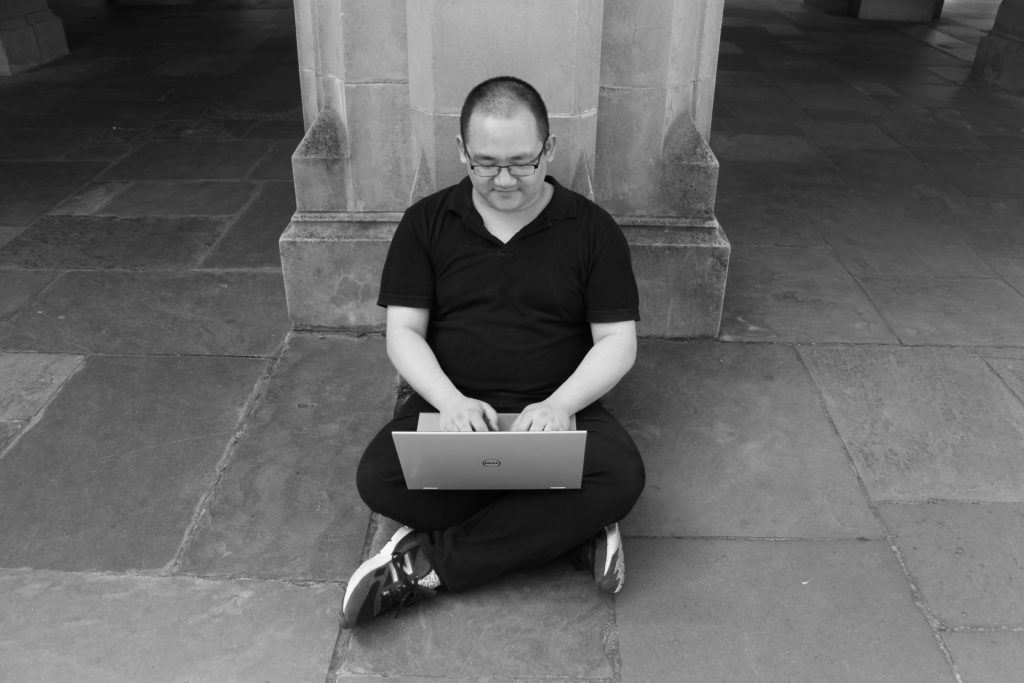
When I was sure there was no such option, I was like “Okay, I want to study music”. I went and did that, I could probably say it was the hardest three years of my life. Not in terms of the actual degree itself, it’s actually combined with the fact I have a hearing impairment. Just to state for the record, my hearing impairment is congenital; it’s inherited from my mother’s side of the family. I’m deaf in the right ear and I rely on a hearing aid for my left ear. Combine that with me wanting to study music, either I’m really crazy, really motivated or I’m someone who wants to inspire other people. I can definitely say my hearing impairment did factor into my decision to study music, I just never thought about how hard it would be for me.
Where it did have an impact on my mental health, in terms of my personal identity in that at first, I was parading the idea that I would be a famous musician who was hard of hearing. “I’m going to be a famous soloist and inspire other hard-of-hearing people to try music”. I hadn’t really been in contact with a lot of hard of hearing people, so it was only really me and my own experiences. At the same time, it led to a lot of questions about my identity. It went further on and in the third and final year of my music degree, my depression was at its worst. I was realising because I was hard of hearing, I just wasn’t going to be good enough.
The reality of it is that musicians practice so much, everyday. Most of it isn’t developing, it’s maintaining the consistent skills that they have, to maintain that high level of calibre to just say be a soloist or be in an orchestra. For me, it was the realisation that I would have to work much harder than everyone else, who was already working much harder, than everybody else on top of that. It made me realise I was just going to be behind others, no matter how much I tried. In terms of my cello playing, it’s like I reached a glass ceiling, that I couldn’t break through. It was where at the end, I realised I wasn’t willing to put in the time to practice because it wasn’t what I found interesting.
In terms of mental health, that did a sort of a whammy. Especially at the end of my music degree, it was like, “Okay, I’m not good enough to be a musician. What do I do?” This was a pivotal moment where I was lost in terms of my personal identity. “If I’m not a musician, what am I?” After my music degree, I went back to study mathematics, finishing my Masters four years later. I can definitely say, I’m more comfortable now in terms of my identity. Let’s go back to other aspects of the mental health journey, where education didn’t really play a part. The other pivotal thing that played a part in my mental health, is the relationship with my mother and younger brother. Basically, to have a simple explanation on things is, my mother and I communicate very differently.
My younger brother is a very hard-working person and he knows how to communicate with both of us. However, for me because I didn’t understand my mother that well, there were things I wasn’t interpreting correctly. One of the damning things I only realised a few years ago, was that my mother would raise her voice because I was hard of hearing. Every time she would do that, I would interpret her raising her voice because she was angry. I don’t blame my mother for most of it, she’s had a very tough life. She’s had to fight a lot against other people who have done her wrong. Sometimes she’s a bit more aggressive about things, sometimes she’s a bit more forward about her opinions. Obviously when I was younger I didn’t understand things, I would always think, “Mum hates me”. We would give each other the silent treatment and that didn’t do wonders for my confidence.
It was even simple things where I’d be like, “Hey mum I want to cook spaghetti” and my mother would hand-hold me through the whole process. It just didn’t feel like I was learning anything and I think some of us can emphasise, with mothers who do too much for the children. It was kind of like me not knowing how to be out there in the real world but I had a mother at the same time saying, “You need to get out there, get used to the real world”. At the same time, she’s not realising how she’s preventing that from happening. Basically, it borders down to miscommunication between my mother and I and not interpreting each other in the way that we intend.
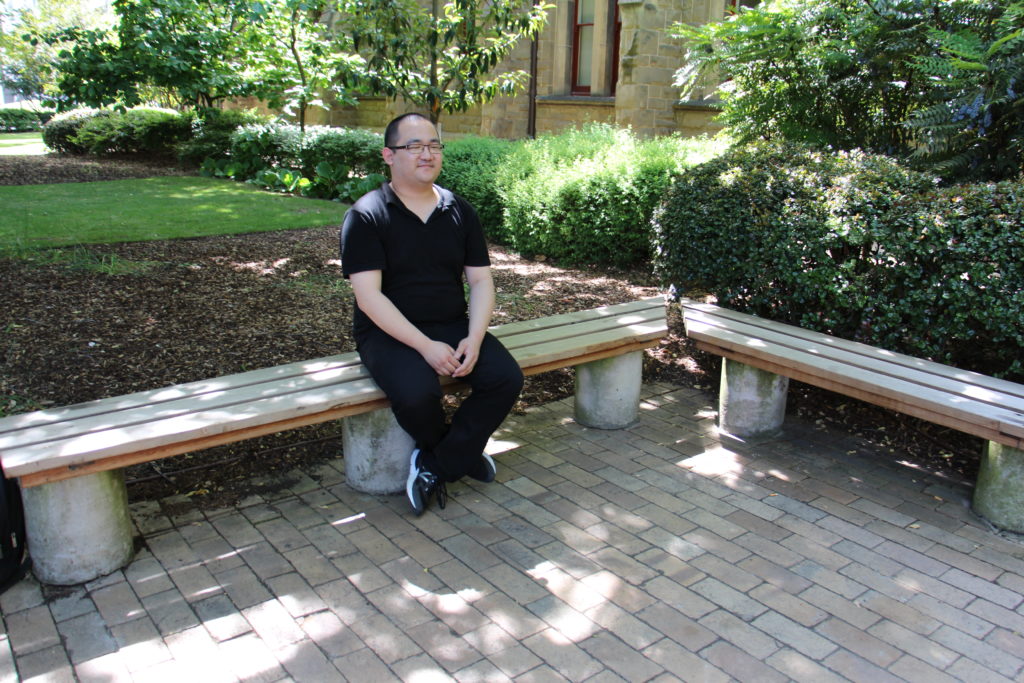
There were times when I definitely got violent towards my mother. I’m not proud of it and its sort of like, obviously to me I was trying to explain as clearly as I could but succumbed to frustration. I tried to find a few different ways to approach the situation: “Hey mum can we try and talk about this?” but my mother to me, she’s either calm and normal or a hundred percent angry. It felt hard to say anything to my mother because she would either randomly interpret it, as an insult or if I just say something bluntly she’ll just find some reason to take fault within it. It can be as simple as pointing some part of her personality that may not be desirable. Let’s just say my mum came across as a bit more aggressive then she needed to which didn’t do much for my confidence.
When you consider the fact, I had a father in a nursing home and a mother who was trying to handle everything, trying to raise the kids properly but she was also handling my dad’s medical stuff. Organising all that whilst trying to raise enough for the family, it would not be fair to pin the blame on her. Because she was obviously having a hard time herself which was pushed down to me. Things got better when I started studying mathematics. I can definitely say mathematics was more intuitive and suited to my way of thinking. I was more in the community that was similar to me, slightly introverted. If you kept wanting to learn about maths you kept learning maths, you just enjoy each other’s company without worrying about who they are, what type of personality they have. It’s like the mutual interest is not on ourselves, it’s on our shared appreciation of mathematics.
The second year of my music degree was when I first went and saw the university counsellor services. I feel like they didn’t do much for me because I realise now, the ideal counsellor/psychologist for me would be someone who is smarter than me and someone who isn’t afraid of calling me out on certain things. If I was doing something wrong, I needed to be told. “Hey Matt, what you’re doing is not right, here’s why it’s not right”. I think and I don’t know if the psychologists are bound by some kind of ethics or anything but I’m pretty sure I read it somewhere that psychologists and counsellors are restricted to what they can say. That’s not something I’m familiar with but eventually I saw a GP, got a mental health care plan and started on antidepressants.
I started on Lexapro but after a while things just stopped working out for me and I disappeared for a few years, disappeared from my GP/psychologist. A couple of years later, this was through my science degree I went back and saw a different GP. Tried the mental health care plan again, saw a different psychologist and again, no dice. It was still before the time I realised I needed a psychologist who was smarter then me and could challenge me. That psychologist I was seeing at the time, she would say, “Things are happening, you just have to accept it”. Reflecting on it now, it was those interactions with her that made me realise how to be a better teacher. She was saying you just need to accept it but what she wasn’t saying was how. In a more general sense, if I say you should do something I have to try and communicate in a more concrete language.
Be a bit more direct in terms of “here’s an action you can do”. Not “here’s what you should do in a very general theoretical sense.” “Here’s an action you can do, here’s something you can think about doing and if you see yourself doing it, you can try doing it”. It could well be I didn’t know what questions to ask back then but I don’t blame the psychologists for not being able to suss out that part: “Oh maybe he might need a bit of help figuring out how to accept things. What kind of visualisations do I use? What kind of meditative techniques would I suggest?” That was a whole bunch of other things I ended up figuring out myself. Let’s finish up the antidepressant stories before I get onto other things.
A couple years ago, I went to a different GP again who was presumably an expert in depression. Basically, he was all business. “This is what we’re going to do, this is how we’re going to do it”. He was already someone in my eyes who knew his stuff, he wasn’t someone who was trying to be the understanding guy “okay I know how to deal with this, this is how we’re going to do it”. I was like, “Great, okay let’s do it”. This was when I started on Desvenlafaxine (Pristiq). Started on 50mg and went through additional 50mg dose increases until 200mg, where it hit the right spot for me. A bit after that, I went and had some blood work done and it turned out my vitamin D levels were very low. My doctor saw that and said, “Okay, take a vitamin D supplement everyday and your antidepressants every morning”.
It was once I hit 200mg of Pristiq and the vitamin D supplement where it completely feels like I’m on top of everything. I’m in control and any depressive symptoms that flares up, (the worst of it being suicidal ideation) I can easily link to, for example, to not sleeping enough that week because I was working myself too much. Sometimes I need to take a break because I’ve been spending too much emotional energy, worrying about some of my students, that kind of thing.
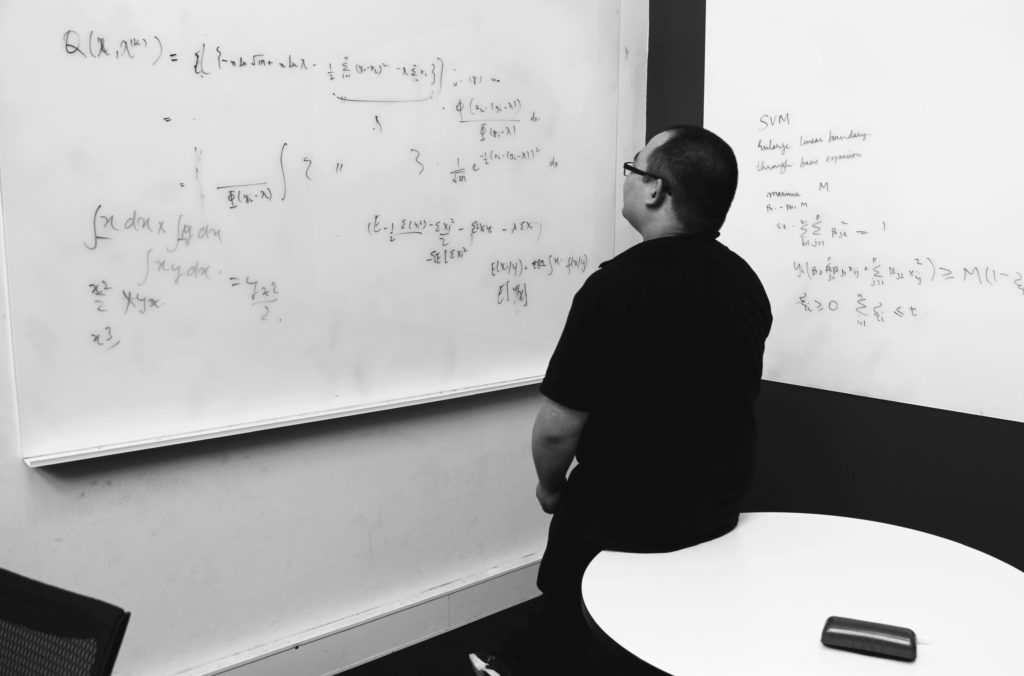
This brought me back to reading about what balances me effectively. I tend to read fairly widely on the internet, usually a random article from here to here. I looked into meditative techniques and I came up with my own strategies for dealing with things. One of the things I would do is, I would pretend my brain is a central command centre. There was a representation of me and there would be different coloured stick figures, that represent my different emotions. What I would do in my head, when I have time to sit down and meditate, is, “Okay, I’m going to sit down with this red stick figure which is anger,” and say, “Hey anger, how you doing? What’s happening? Why are you feeling angry?” That’s something that I used to help my introspection and to better understand myself.
One of the things I found interesting, was how other people represented depression. there is a very popular comic, where the author described depression like a black dog. I’m pretty sure there’s a foundation as well ‘The Black Dog Foundation’. After that I was like, “you know what, that’s pretty cool”. I can see how it feels that way but it’s not how I see it. I started thinking about how I visualise my depression and mental illness. To me, it’s a shadowy speck in the middle of my back, between my shoulder blades. It’s very small, it’s always going to be there, it’s fundamental to say that. The important thing about mental illness is knowing it’s always going to be there. You need to be able to take care of yourself, in order to take care of the mental illness.
For me, it’s a flamy, shadowy speck in the middle of my back and if it was at its worst, it would be completely covering my body, like with a hoodie and a coat. I would be feeling completely paralysed, not able to move stuck with the same thoughts going around in my head. One of the things that would happen when my depression was at its worst, I would have thoughts of paranoia. Where I would have to lie in my bed or stay in my chair and thoughts of “they hate me, they’re going to kill me”. Something like that or suicidal ideation where “if I get off this bed now, the only thing I’m going to want to do, is get that piece of rope and hang myself on the nearest tree”. I wish I could tell myself why hanging myself was the way I wanted to go but I have no idea why. I can say, when I had episodes of suicidal ideation, it’s the image that appears most in my head.
Thankfully now, with the antidepressant and vitamin D supplement, it’s easy for me to take a deep breath and realise it’s easy to say to myself, “Okay, you’ve been working yourself too hard. You need to step back, have a good night’s rest and just take care of yourself”. That’s how it is today, it’s comforting to wake up every morning. Sometimes I have bad days where I just don’t get stuff done. It’s one of those where especially in today’s world, we are a bit obsessed with productivity. “You know what, it’s okay to have a bad day and just lounge around all day, don’t beat yourself up about it.” That happened to me yesterday and I was only able to get back to doing something after 9 pm. But you know what, I still managed to get something done.
I think the important part for me, is acknowledging you’re still going to have a bad day every now and then. Ultimately, it’s still my responsibility to take care of myself and as someone who doesn’t like relying on other people, just the responsibility of getting up every morning, making a cup of coffee, taking my antidepressant and vitamin D supplement, make sure I do my morning routine of having a shower, brushing my teeth and focusing on the task I most don’t want to do or want to get out of the way, just setting things in motion. Effectively, it’s easy being productive for most of the day, once you get a good amount done in the morning. Basically, what happened yesterday morning, I was a bit sluggish getting out of bed. I was a bit slow to get the day started, I just kind of didn’t do much for the day until after dinner. Where I caught back up with myself and I was able to focus on work.
Once your father had gone to a nursing home, did you try and seek another father figure though other males?
It feels very embarrassing to say but it never occurred to me at the time. Part of my disposition, is that I tend to be a very lone wolf type of person. Unless there’s someone already in my life I see immediately, I wasn’t really going to look out and look for someone. Obviously, I tried to take guidance from my mother but like I said before, there were issues between my mother and I. That was definitely a period of time when I was feeling lost. I didn’t feel like there was a prominent adult figure in my life that I thought I could take after. It was just me, having to do everything myself.
How did it affect you the most, not having a father figure present?
The most it took a toll on me was self-confidence. We know now as adults, the reality is we are still figuring things out as we go. But when you’re still in high school, you’re younger and you haven’t figured that out. You’re looking for other people for guidance, when you don’t have that other person to say, “Hey, I think you’re doing pretty well,” or “hey, this is what you shouldn’t do, here is why we should talk about this thing”. At least for me, I didn’t have anything to measure or anything to judge against. As a result, the more mistakes I made, the more I tended to withdraw. I just didn’t have someone like an adult figure or mentor, someone I can bounce off and say “what could I have done differently? Where did I go wrong?”
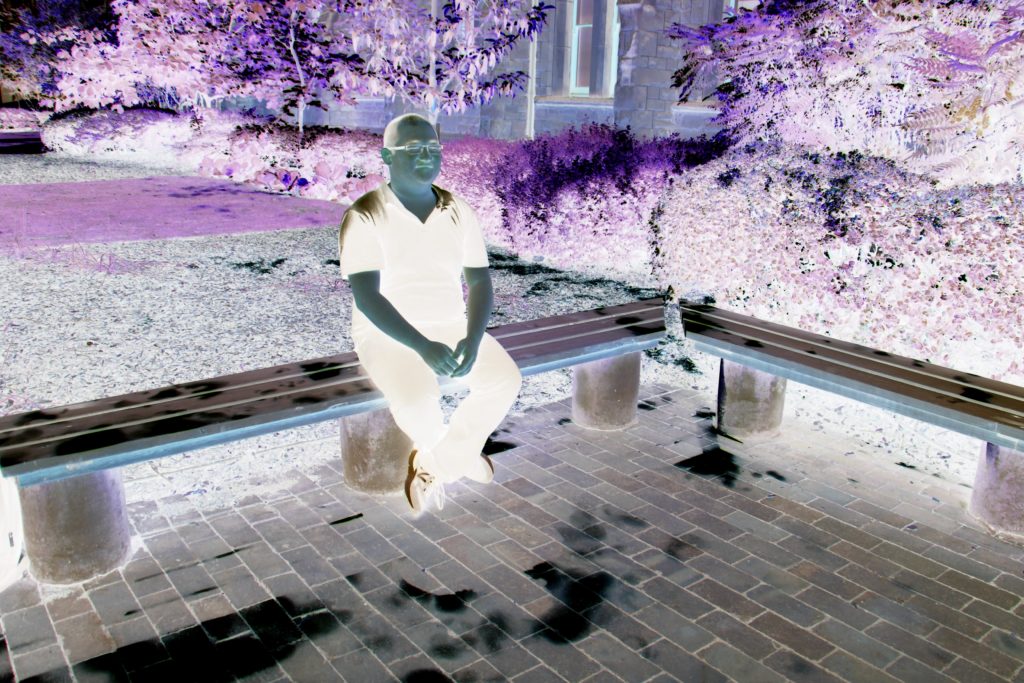
Along with my lone wolf disposition, the lack of certainty/guidance really did a number on my self-confidence. Knowing what was right to do. I can definitely say I was the awkward, shy, shut in teenager who mostly preferred to be home, playing computer games all day. As you can imagine, I also had issues with trying to talk to the women in my life. Which I’m a bit better at now, thanks to some wonderful friends. Back then, I could have just been another lonely, gamer type kind of person.
Did you go through the emotion of anger when your father was unwell? When he went into the nursing home, did you feel like he left you, even though you knew he mentally and physically couldn’t do anything about it?
Definitely, it reminds me of a scene in Breaking Bad. There was a scene early on where the son got very frustrated at his father and yelled at him “why don’t you just die”. I would be lying if I said those kinds of thoughts didn’t cross my mind. It’s sort of like you understand those statements in a state of frustration. At first when you think about it you first think “what kind of person am I, to think such terrible thoughts?” I can say this objectively, it would be better realistically for everyone involved if my father passed away. I’m not going to deny that, putting all emotions aside thinking about practical things for me, my mother and my family, it would be better if my father passed away. I guess it’s how I came to terms with it.
When I approach these kind of things, I separate the emotions from the rational. That’s where I can say, “okay I’m thinking that way because I’m being rational in that, this situation is causing pressure, it’s causing frustration and it’s making life harder for people”. On an emotional viewpoint, definitely a no go.
Do you feel like a part of you gave up being a musician, to please your mother?
I won’t deny that. I definitely won’t deny that because I do remember thinking doing the studies in maths, doing the science degree I remember thinking “hey this is going to be a nice compromise, I’m going to study something I enjoy. I’m going to make my mum happy by showing her that I’ll be studying something, that has more realistic job prospects”.
Has it come to a point where you feel more at ease with putting yourself and your needs first, then pleasing your mother?
It’s definitely easier now because I’m in a position where I’m making enough, saving enough, at least I think I’m contributing enough to the house and family. Presumably what I do is already satisfying my mother, so I don’t have to think about it too much. Definitely back then when I was studying, worrying about careers, degrees, jobs, all that kind of thing it was definitely much harder. There was always some expectation from my mother to be like, “Hey you’ve got to do something that will guarantee you a good job. Make sure you do well in that interview, make sure you type that resume up well”. I can now say, pleasing my mother is not something I worry about because it’s something I’ve already taken care of.
Have you been open about your mental illness to your loved ones?
I try. One of the approaches I tried with my family was saying “hey, I’ve got depression, can you please try and regulate some of the things you do?” I told my mother about her raising her voice and me being hard of hearing, interpreting it as angry. My mother understands it now but it wasn’t easy for her to adjust. One of the approaches I tried with my family, was trying to be open with my mental health. That didn’t go down too well because to them I was playing victim. One thing, I realised was that my brother and mother aren’t people who easily took responsibility for their actions, unless they felt they definitely wronged someone else. It’s like they weren’t thinking too much about the impact of what they were doing or how they were doing it on me. Yet, they were asking me to be mindful towards them which is part of the reason of the conflict as well. To me there was an obvious disparity but they weren’t aware of it. They both seemingly held the view that, “if you have a mental illness, you need to take care of it yourself and don’t let it affect the people around you”. Fundamentally, it led back into: “You have to deal with it yourself. If you want to reach out for help, we’ll help you but you’re on your own otherwise.”
There’s a thing sometimes, where with someone with depression, you want that friend to break into your house and just sit on the couch and eat ice cream and watch a crappy show on Netflix with you. At the time, that was the kind of friend I needed. I don’t blame anyone for not doing that because I never made friends with people who would do that for me.
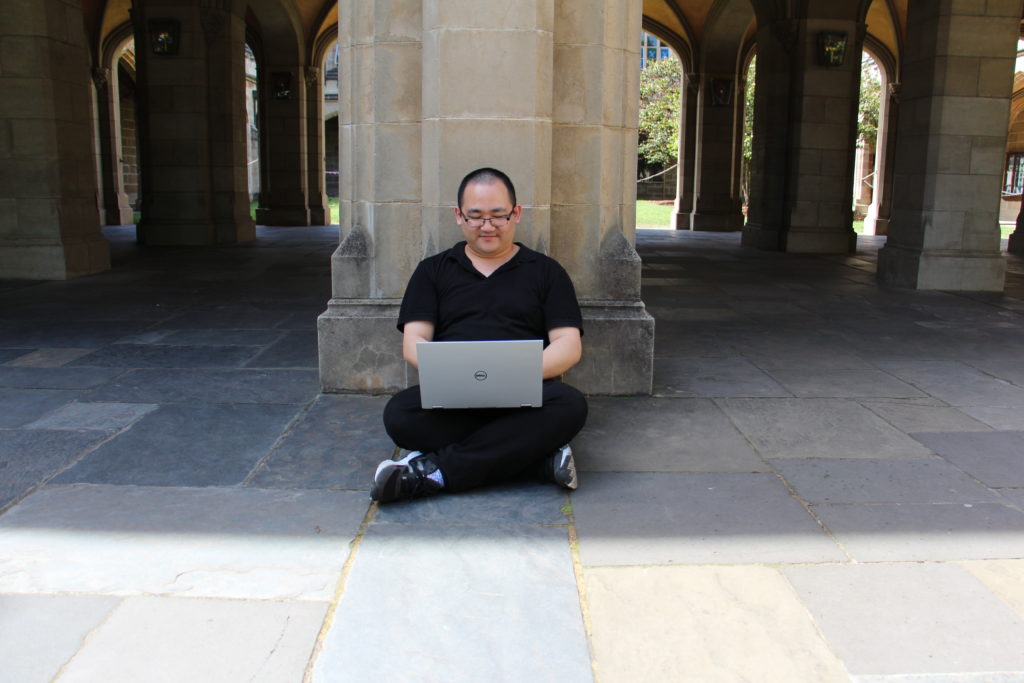
I think it’s definitely made me think about who I want to be open with, about my mental health. Obviously as you know, I don’t have much issue with talking about it. I think it’s a lesson that everyone seems to learn. How much of ourselves do we want to reveal to and so on? Do we reveal it to our family? Do we trust our family to reveal it to them? Do we reveal it to our friends? Do we trust in our friends to understand us? When I started studying music, there was a bunch of friends who were very inviting and I never had to bring up my mental illness with them because I was always naturally happy when I was in their company. It was just never an issue so it’s one of those things you need to judge the people you’re interacting with. Depending on whether you want to try and be more open with them, it can go well or it can go wrong. I think it’s normal for people like me, to be a bit more cautious about who we want to be open with.
What’s been the greatest lesson you’ve learnt from your family so far?
I think it’s the realisation that humans are flawed. It kind of ties in with what I said earlier, when you’re growing up, where your parents aren’t as great as what you thought they were. When you’re growing up, your parents aren’t as knowledgeable as you thought they were. I think that’s the biggest lesson I’ve learnt from my family. Because my father’s in a situation where he can’t actively enjoy life, it means I don’t actively get to see the best part of him. When my mum is stressed and it passes down to me, watching her yell or when she’s a bit agitated, that’s not the best part of mum but you can understand why it’s happening. It’s also realising because they are prone to emotions, we all are, we are prone to periods of weakness. Because maybe we are tired, we just don’t have enough energy at the end of the day and we just make errors in our judgement. It’s all about that. The biggest lesson I’ve learnt from my family fundamentally, is everyone is flawed in their own way and the way to combat that is to recognise the good points.
Was it the transition between high school and university where you were by yourself majority of the time?
I was by myself even in my final year of high school. Mostly what I was doing through lunch time, was walking around by myself. I used to hang out with a group of two others, until I got bored of them. “I want to hang out with other people because they’re more interesting”. Because those two were similar type gaming people like me, and they were happy with each other’s company. However, I was starting to get bored of them and wanted to hang out with more interesting people.
In university were you by yourself?
More by choice. Because of the combination of my hearing impairment, meaning I tended to stay away from crowds. It’s difficult for me to follow a crowd conversation, basically I wouldn’t be able to follow where the conversation is going. Combine the tendency to stay away from crowds and being a lone wolf character, it led to me naturally being alone.
Do you feel you could have challenged that?
Definitely but I can only say that now as I’m more aware of my actions. Back then, I wasn’t as self-aware. It wasn’t really until a few years ago where, I don’t know how to explain it but it feels like most of my university years, was spent floating right through it. Doing things, not really being aware, not really feeling like I took action of my life. Figured out what I want to do but “oh I’m just going to go to class, I’m going to study, I’m going to do things I find interesting”. But only a few years ago, things kind of fell into place for me. I started to be more conscious, taking more active control of my life, just focusing on self-improvement and doing what I wanted to do. That was definitely something I didn’t have back then. I am still a lone wolf in most regards, but I consider myself better equipped these days.
Have you reached a point in your life, where you know who you are?
Yes, that wasn’t a very convincing yes. That should have been a convincing yes. How do I want to phrase it? Let’s start by going with what kind of person I think I am. I am a person who is interested in a lot of different things. I’m a person who enjoys the intellectual side of things, if I do things it’s because I want to learn or it’s because I’m thinking. It’s a problem or puzzle that needs solving, I suppose it’s pretty obvious to people given I’m a mathematician. I know I want to keep on learning, I know what kind of life I want to keep on aiming for. I still don’t know what kind of job is ideal for me but I think for me as a person is, I have a very solid idea of what kind of person I am. It’s really just being comfortable within me, more then knowing.
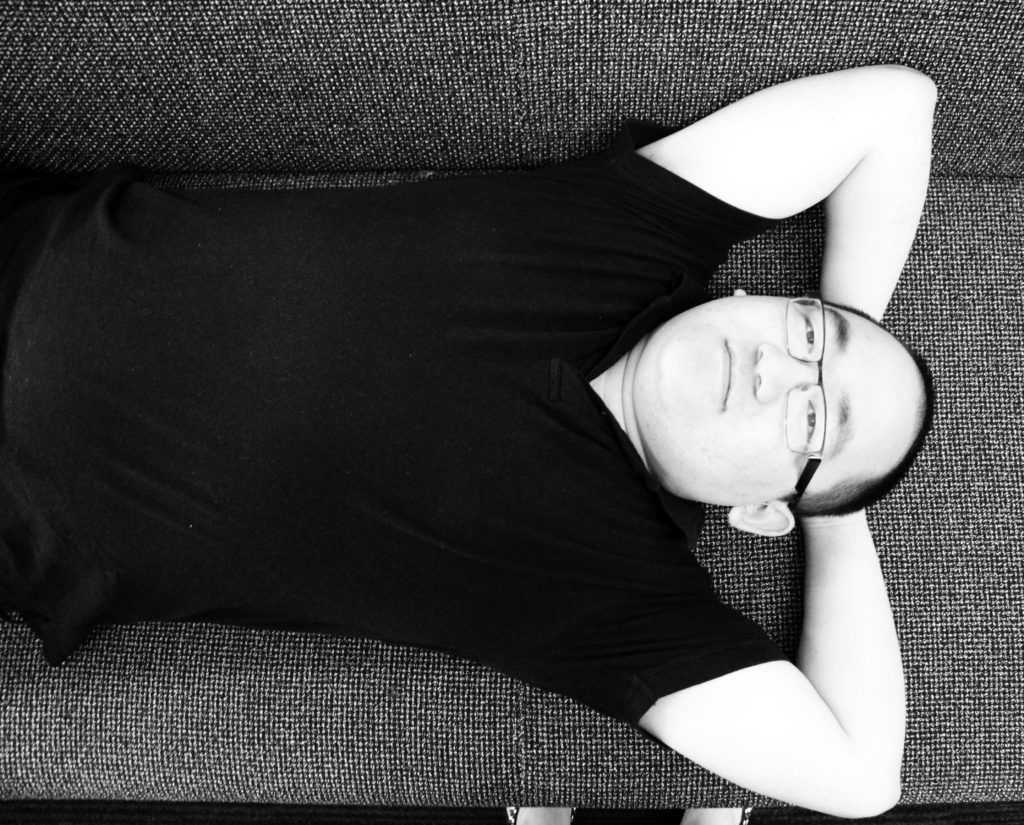
Do you think because you do have the mind of someone who likes to solve the puzzle, when it comes to suicidal ideation, you prefer to solve the issue that is making you feel that way, then the quick reaction of ending your life?
I will tell you the response I have to my suicidal ideations. So just to rehash, my suicidal ideation is to hang myself. In one of my introspections, I realised that I will well and truly commit suicide if I felt like I had nothing more to give to the world. That well and truly goes to show, that’s what motivates me to teach, to help other people, to kind of build. Sort of with the problem solving, I’m always thinking about how can I make something better for the world or how can I make something better for the environment around me. At least I know for myself right now, as long as I’m continuing to do something like that, the more I’ll be able to stay away from embracing the suicidal ideation. For me, it feels like it will always be in the back of my head, reminding me that I should never make myself useless.
It ties in with the fear that I have that I’m going to be old, I’m going to be useless, not going to know anyone, going to be a burden on my family and that’s one thing I really hate. I don’t like being a burden to anyone in anyway. Even if it’s just a small favour, I hate asking for favours. I’ve realised that’s a flaw in my personality and I’ve sort of rationalised that there are things I can’t do; I’ve acknowledged that maybe I have to give up and delegate to other people, that kind of thing. At my own personality core, if I could do everything myself I would do everything myself. I think that’s what drives my learning as well. I want to be an all-rounder who can just do everything.
Do you think taking everything on by yourself is realistic? Can it have the consequences where you become so isolated you become a shell of oneself?
Both, actually. The isolation part touches on something I’ve been thinking about lately. In terms of realism, there is going to be a point where I will do something that’s unrealistic. Usually at those points, I’ll be aware enough at those points to say this is where I’ll say, “Okay this is where I need to take on someone else” and trust other people. I’ve had to do that when I was lecturing because initially I was taking on too much work to deal with. I just said that to my bosses “I have too much work, I’m struggling”. At the time, it didn’t click for me to say to myself, “You should trust other people, you should take on other people to do the work for you”. Because basically I didn’t trust them to do the work properly the way I wanted them to. I think that’s something I can work on and I think that’s something I can work on through experience. Having some of that experience already, I have a better idea of knowing when I’ve taken on too much.
The thing about isolation, is that recently there was an article about Elon Musk written by Neil Strauss. One thing that really struck me in that article, was Elon was saying to Neil that, he just couldn’t find a suitable partner and it was painful to lie alone at night and being lonely. The loneliness is something I’ve struggled with over the years. As to why, let me put together everything about me: First, I’m hard of hearing. Secondly, I’ve got a music degree, I can play the cello and I’ve been teaching myself piano as well. Thirdly I’ve done my masters in mathematics. Fourthly I’m teaching myself web development. Fifth I’ve got this crazy idea to practice art and make a web comic.
Putting that and you’ve already got the hardest thing for me: it’s next to impossible to try and find, someone else who can do those things equally. I’ve realised now it’s definitely not a realistic expectation and I think it also stems from the fact, that being hard of hearing I’ve never had other hard of hearing people to relate to. One thing I’ve always looked out for are other hard of hearing musicians, because you just kind of connect on that level. I did find a few, one of them was my second-year music theory lecturer. However, because he was already in his forties to fifties and an established composer, he couldn’t really talk on my level (as someone who was trying to learn the ropes of being a hard of hearing musician). It was more he figured out how things worked for him: this is how he composes, this is how he’s going to do things, he’s just going to do the things he does.
I found a bit of comfort attending tech meetups around here, it’s nice to talk about web development, programming and occasionally help out the newbies, mentoring every now and then. Something that’s missing from there is, you won’t find a lot of programmers who come from a mathematics background or a music background. I know it seems I’m being unreasonable, just hoping to find someone who ticks every single check box on my kind of list of things. At the same time, it’s still one of the reasons I feel very lonely. Even though it’s one interest that allows me to relate to a whole bunch of other people, sometimes I wonder whether there’s a person I could talk to equally about everything.
I’m not going to claim to know what Elon Musk feels but when you look at Elon Musk as someone who is an engineer, in not just civil engineering and mechanical but he knows internet stuff, electronical engineering and is also the head of 3-4 companies. He’s doing so much, he knows so much as well, you’d think there are engineers who could talk about engineering, but how many people would be able to talk on Elon Musk’s scale? That’s why I think he’s missing someone in his life who could relate to every single aspect but the reality of it is, that people like Elon Musk are one of a kind and is always a unique kind of representation. Trying to be that kind of person is unrealistic, unless you’ve led that exact same life as them.
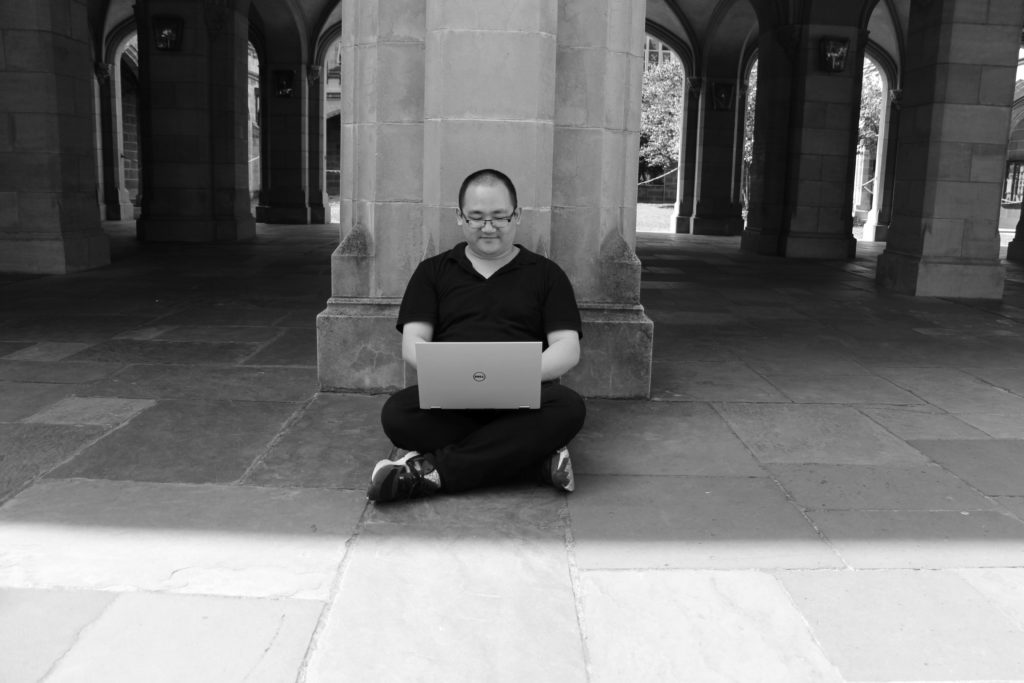
I think that’s how it is for me as well. I know I’m always going to be trying different things, I know that even if I get a job in one area, I’ll grow tired of it after 5-7 years and I’ll jump into something else or be doing something else. For me, there’s going to be a point where I think about everything in a very theoretical, conceptual, abstract sense. Where the only thing left for me to do is, start pushing the boundaries which you can see in Elon Musk. He’s trying to push forward innovations in space, innovations in transport and so on, he really wants humans to move forward.
Do you think all those things you listed, such as having a hearing impairment and music degree is what makes you unique though? Those qualities about you, do they enable people to learn new things and it’s what we need to further social connection?
Uniqueness is what I would agree to. What other people need? It’s a tricky question because an argument is happening in my head between what they need and whether they are capable of acquiring what they need. It’s something I naturally think about as a teacher, I come across students who, it’s hard for me to communicate unless you’ve been teaching them for a while. When I sit down with a student, you watch them work and get a good idea of how they think. From that, one of the things that follows on from that is, whether you can extend them or not. Whether you can or can’t is not in their mental capability or whether they are willing to do it.
Is it a matter of whether they will choose to embrace it?
Definitely. I know that as someone who enjoys learning, it’s only natural for me to take in everything, to embrace new things to try and find new things and new ideas. To use my experiences to modify my core ideas, my core understandings. Also, when I’m learning new things, and this is one of the things I enjoy about mathematics, I enjoy finding seeing abstract relationships. It’s not even in maths, it’s in real life as well. One relevant abstract relationship is, basically seeing the US election with Trump being elected, with Brexit. You see the relationship in how people react as a population and a society. What I was worried about down here was the same sex marriage debate, the plebiscite. I was worried the same thing would happen. Thankfully it didn’t.
For me because I’m learning, I build these abstract relationships in my head and it means I’ve got these ideas that I can easily apply. I can reference other things that I’ve learnt and easily relate it to that. Just to bring up another example that I’ve been thinking about recently and I’ve been writing blog posts about is, if we think about the general concept of a system. In that, if we try and define a system, one of the things I tried to do was set up moral guidelines. That lead to a society that would treat each other with equal respect, while still allowing each other to have their equal opinions. The more I tried to allow in more rules, the more I realised I was making a system that wasn’t going to be optimal. It wouldn’t be a perfect system, how you describe perfect can be up for debate.
Then there’s a theorem in logic, in philosophy, in mathematics called ‘Gödel’s incompleteness theorem’ that basically explains in a really handwavy kind of way “no matter how strictly you try and define a set of axioms with a set of rules, there’s always going to be some kind of inconsistency”. It’s very abstract in a sense but for me it’s all about building those abstract relationships and learning to build abstract models and try to see if I can relate other things to that.
Do you try and reach for perfection when it comes to the people you meet? Do they need to meet your expectations when it comes to having those unique qualities you have, or you’ll disregard them?
That’s pretty much what happens. The way I’ve been working at it is, fundamentally not everybody is going to live the same life. From that, it follows not everybody is going to have the same priorities. While obviously I can’t pick out every part of their life and say, “This is what you should have done instead of being more like me”. Okay that’s fine, they never had that opportunity like being a musician for example. Maybe they had a bad experience with mathematics in primary school that deferred them from studying. I usually try and rationalise it in that kind of way because at least for me it’s reasonable and it prevents me from having a less or negative opinion. It’s something I actively combat when I occasionally meet new people.
It allows me to assess people, it sounds so creepy when I say it but it’s something I do. It’s something I do with everyone, I build a profile of them in my head Instead of trying to fit them to my preconceived model or notions, I assess them on their own merits and think, “Okay what’s the good parts about them?”. In my mind, if I was looking for a partner I guess my expectations can be a little bit higher. At the same time, I understand rationally and logically that it’s unreasonable to have expectations.
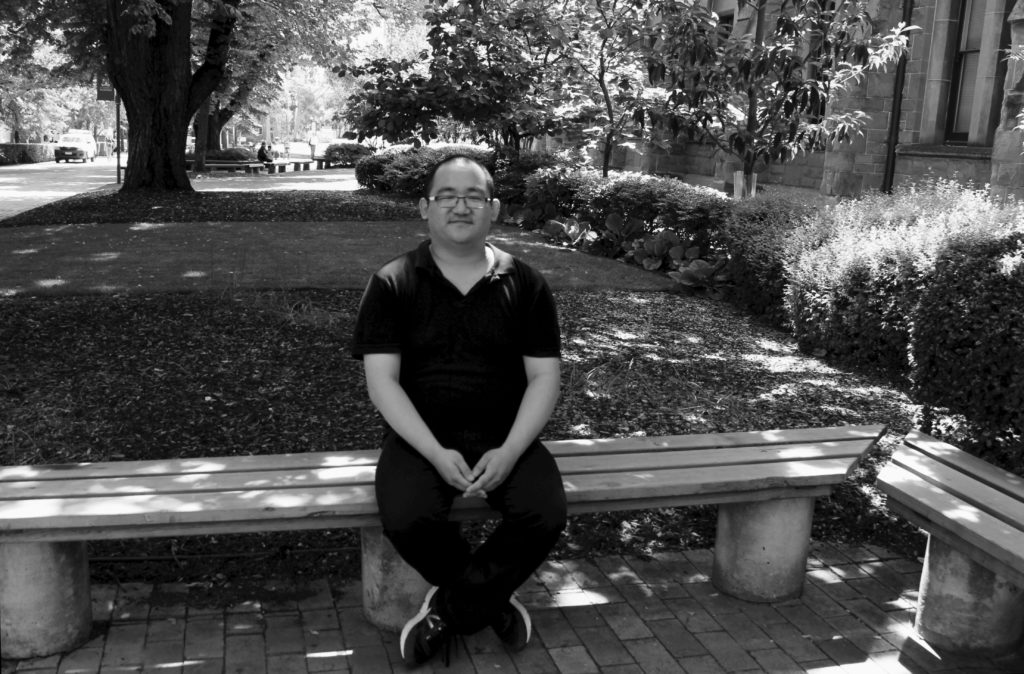
There’s a thing that they say about design: the essence of it, is deciding which trade-offs they want to make. “Which trade-offs could you deal with?” For example, the new Google Pixel 2, they removed the headphone jack. One of the things you could ask yourself is, “What were the designers thinking? What was the trade-off or what did they gain in turn by removing the head phone jack?”. I try to think about it in terms of that design sense. “Okay we’ve all lived our lives differently, made different decisions”. It allows me to focus on the good parts of people, ultimately be more positive and be more encouraged by people. Look for the good qualities in people rather than focus on the negative.
Do you love yourself, Matthew?
No, no I don’t. I don’t think I ever will, I could accept myself sure but I don’t think I’ll ever well and truly love myself. I’m aware of my own flaws but at the same time, I recognise there’s no concept of an ideal person. There are people who have ideals in different areas that I’m interested in. Say Sherlock Holmes even though he’s a fictional character. Sherlock Holmes holds the ideal character in being observant, knowledgeable and being able to read people without talking and without knowing much about them. Elon Musk is knowledgeable in more than one discipline in engineering and for me, I would want to be knowledgeable across more than one area. Obviously, Elon Musk has his own faults and if you do end up reading up on him, he basically grew up in books. He didn’t have quite a normal childhood and quite a strained relationship with his father.
There’s a motivational speaker, Tony Robbins. I don’t know enough about his past but I do know he’s always travelling around the world, his rich and owns about twenty companies. Does basically motivational stuff, I haven’t read much into his profile to know of his flaws but the ideal stuff I take from him is, how his managed to optimise his life. I remember reading a couple of articles how he basically has a personal trainer who manages his fitness, his breakfast, diet and everything. How he’s figured out how to sleep a few hours in the morning he would do this and this, that would allow him to have the energy to work 14 hours a day. I guess this comes back to because I haven’t had a father figure or adult figures in my life, I looked outwards to people and asked myself, “What’s something about them, that I want to have in my life?”
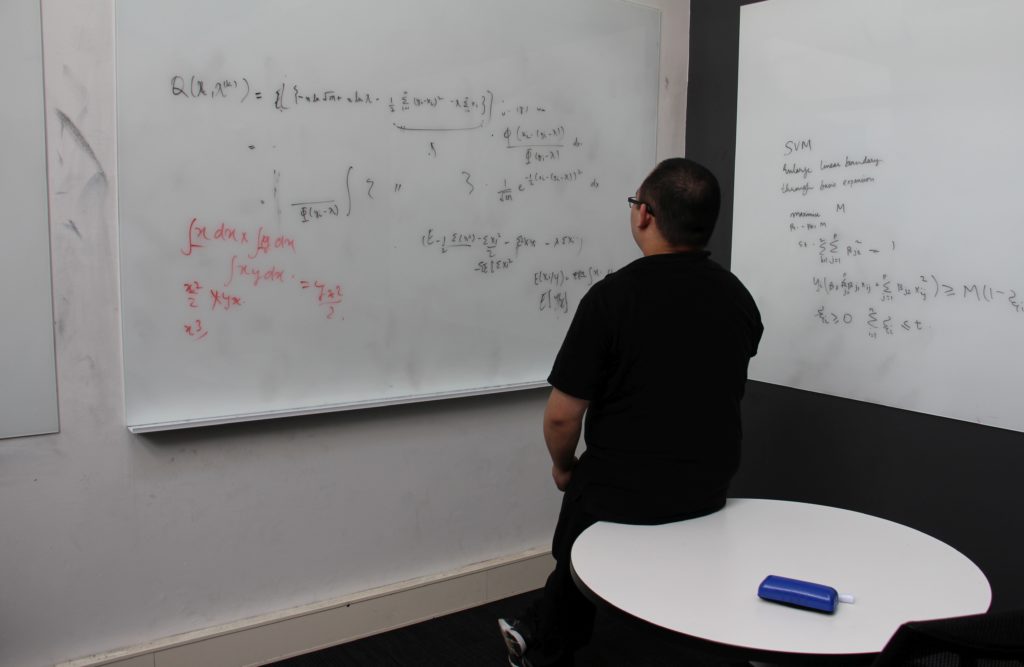
How are you feeling now?
Feeling quite refreshed. It’s nice to dive into my own head and just flesh out all the thoughts and put them all together and make connections that I haven’t realised before. Very grateful for this interview.